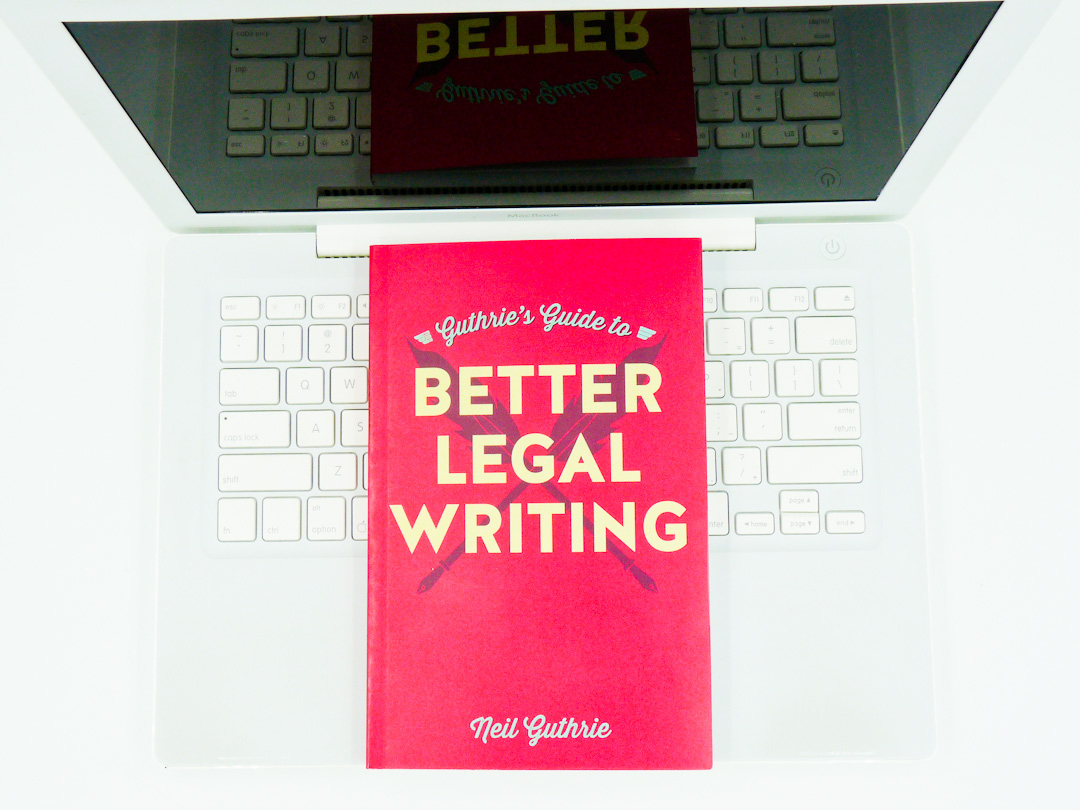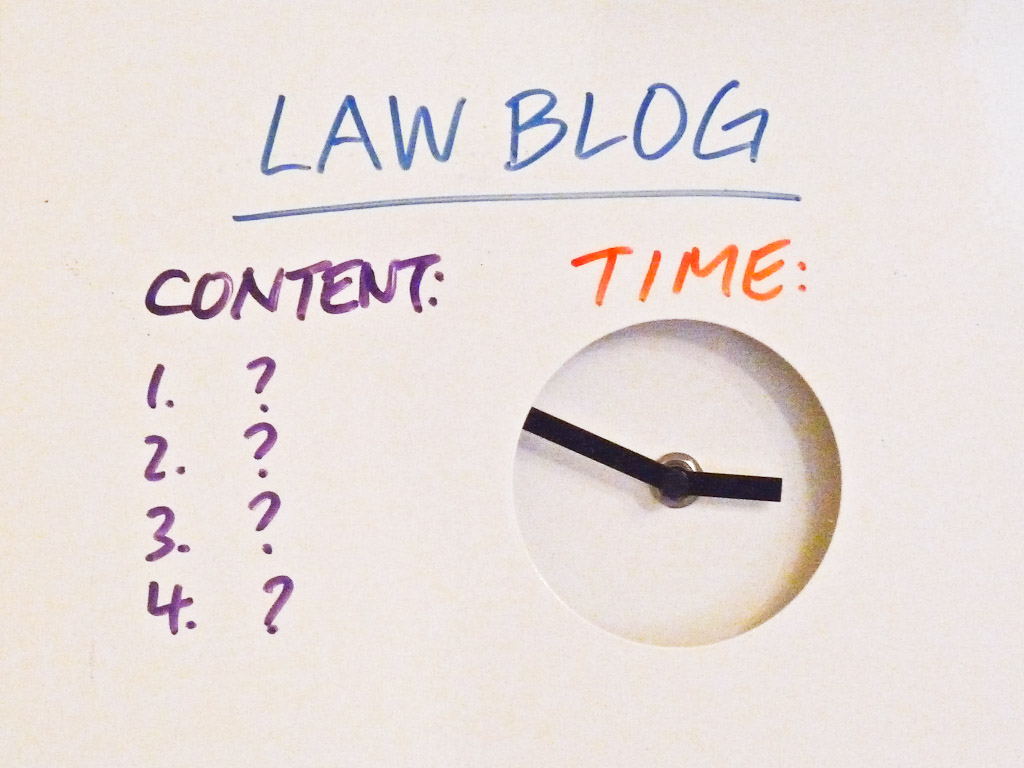
Improve Your Legal Writing and Marketing
Required reading for all lawyers and law students: “Guthrie’s Guide to Better Legal Writing” by lawyer and writer Neil Guthrie.
This book isn’t just about legal writing. It also helps lawyers market themselves. Effective writing is one aspect of effective marketing.
Legal Writing Tips
Here are some of Neil’s tips to improve your legal writing, whether it’s for an email, memo, blog post, or social media post:
1. Be Reflective
His opening tips include thinking about your target audience and writing point first. Are you writing for in-house counsel or ultimately their business teams? Is the point of your piece mentioned only at the end for the determined reader?
Taking the time to reflect on your target audience, and the point you want to make, will also boost your efficiency in writing.
2. Be Enticing
Neil provides some examples showing how boring headlines and introductory words of articles are, such as “In this recent decision, the Ontario Court of Appeal reversed a decision of the Superior Court of Justice, which had…”. We see it all the time, but not so much with blog posts that have won a Clawbie (Canadian Law Blog Award) – hmmm… does writing in a more “human” way compel someone to read your article more? Yes!
So he encourages us to make our openers enticing. You should also apply this tip to your LinkedIn summary. When someone looks at your LinkedIn profile, only the first two lines of your summary will appear (even fewer words are shown on the mobile version of LinkedIn). The reader will need to click “See more” (or tap on the summary on mobile) to read your entire summary.
 Some may feel uncomfortable with being lively in their writing. It may be too “conversational” for them. I asked Neil for his thoughts on how to encourage lawyers to write in a more conversational tone. He responded: “A good trick is to read your piece aloud. You will know from that if it sounds like a conversational yet professional client update – or, more like a will or a credit agreement. (You’ll also spot errors your eyes glazed over on the screen.)”
Some may feel uncomfortable with being lively in their writing. It may be too “conversational” for them. I asked Neil for his thoughts on how to encourage lawyers to write in a more conversational tone. He responded: “A good trick is to read your piece aloud. You will know from that if it sounds like a conversational yet professional client update – or, more like a will or a credit agreement. (You’ll also spot errors your eyes glazed over on the screen.)”
3. Be Concise
Lawyers are known to be verbose. Please lose the verbosity! No one wants to read more than they have to, especially online.
Neil’s list of useless verbiage with shorter substitutes is a helpful resource if brevity isn’t your strength. For example, substitute “with the exception of” with “except”.
Marketing Suggestions
Some of Neil’s marketing-related suggestions deal with:
1. What to Write
Very often I find lawyers don’t know what to write. Neil lists some suggestions, which are adapted from the Law Society of Upper Canada’s Guide to Business Development for Women Lawyers. From the list, a key question every lawyer should ask is “What challenges are your clients facing?”
2. The Courage to Write
Some lawyers may be nervous about writing. Neil offers some guidance for the “reluctant legal blogger”. I really like the first tip he provides to novice bloggers: “Don’t write about the law; write about how the law affects the people you serve.”
Also, he gives advice specifically aimed at associates and students. All lawyers regardless of practice level should be reviewing it though. For example, a good reminder is to check who the firm acts for to avoid saying something negative even though you personally don’t act for that client.
3. Social Media
There are a couple of pages on navigating social media, including considerations for managing your presence. A key marketing point he makes is: “The only way to build a true personal brand, however, is to post original (and, ideally, thoughtful) content of your own.” This doesn’t mean you shouldn’t be sharing content from trusted sources. Make sure to write your own blog post or LinkedIn article, especially one that speaks to a challenge your clients are facing.
Other Resourceful Information
As a lawyer, writer, and editor, this book resonated with me a lot! Some other areas of the book I enjoyed reading were:
- His list of commonly confused words and his explanation of what the words mean. Do you know the difference between “affect” and “effect”? What about “complement” and “compliment”? Don’t break a reader’s chain of thought by using the incorrect word.
- The chapter where he answers questions people have asked him, such as:
- Can I begin a sentence with “And” or “But”?
- What is the correct plural of “factum”? Is it “facta” or “factums”?
I asked Neil what incorrectly used words, or useless verbiage, he often hears partners and clients complain about or feel irritated by. He said there are many, and listed the following as some frequent problems, which partners and clients are guilty of as well:
- Latin (banish prima facie!);
- Using more words than you need to (in the event that instead of plain old if);
- Legal jargon non-lawyers don’t understand;
- Weak adverbs like generally which are intended to inject a note of caution – but which often just convey I didn’t bother to think this through and verify my conclusions; and
- Passive constructions, which will make your writing flabby, verbose, indirect.
I might not have followed Guthrie’s Guide to a tee with this blog post. No need to point it out to me. Instead use that time productively to improve your client’s case and how others view you. Moreover, as Neil states at the beginning of his book, it’s time to “get writing!”



